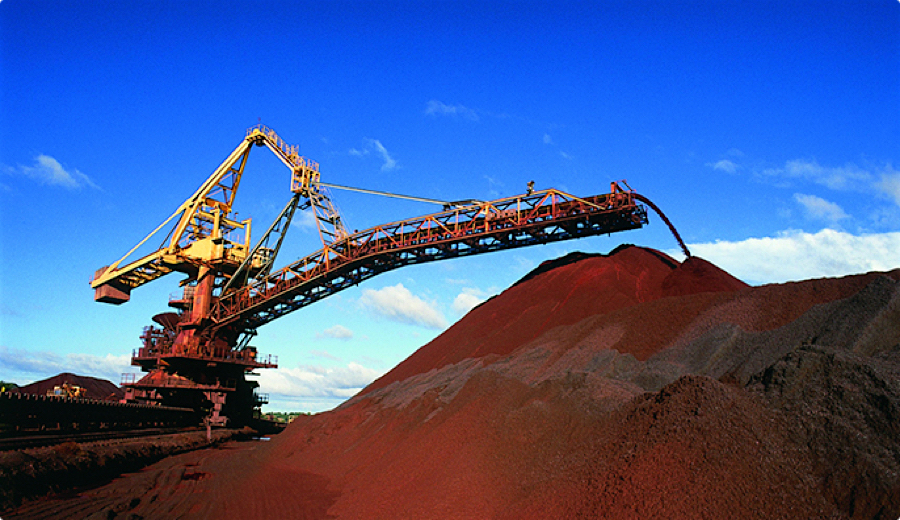China demand for Vale ore to keep price above $90/tonne in 2019 -CFO

RIO DE JANEIRO, Nov 2 (Reuters) – Chinese demand for top-quality iron ore from Brazilian miner Vale should stay strong despite trade tensions with the United States, helping the world’s top iron ore producer keep its prices for its highest quality ore above $90 per tonne in 2019, an executive said.
Chief Financial Officer Luciano Siani said the Chinese demand would also support prices for average quality ore remaining around $60 to $70 per tonne next year.
“Vale’s ore should keep trading above $90 (per tonne),” he told Reuters. “China’s flight to quality is inexorable.”
Beijing’s efforts to clean the Chinese skies by clamping down on polluting steel mills has fueled demand for high-grade iron ore, which boosts productivity and limits emissions
.
“What will define Chinese demand for iron ore is continued urbanization, infrastructure investments, auto production,” Siani said, adding that the Chinese government tends to stimulate internal demand when the economy slows down.
Chinese iron ore futures hit their highest level in almost eight months on Monday, supported by firm demand for the raw ingredient in steel as stockpiles at ports dropped last week.
Still, Siani said it was hard to make forecasts beyond 2019.
The Chinese government is trying to make peace with Brazilian President-elect Jair Bolsonaro, whose China-bashing threatens to chill a profitable trading relationship that has benefited both countries.
Samarco plan
Siani said a business plan for Samarco, a joint venture of Vale and BHP Ltd in Brazil, had been sent to the company’s creditors this week, a key step toward resuming operations at the troubled iron ore mine.
The Samarco mine has been paralyzed since 2015, when a tailings dam burst, killing 19 people and devastating a major watershed in Brazil’s worst man-made environmental disaster.
Last month, Chief Executive Officer Fabio Schvartsman said he thought the mine could resume production in 2020, after Samarco, Vale and BHP inked a deal with Brazilian authorities settling a 20 billion reais ($5.3 billion) lawsuit.
Vale, the world’s largest nickel producer, is still struggling with plans for that segment. The company has been seeking without luck to find a partner to invest in its New Caledonia nickel mine. Speculation has swirled over whether it could mothball the project.
“I would say the pendulum is swinging more in the direction of keeping the asset (operating) because of its strategic importance to the electric vehicle market,” Siani said.
The nickel mine needs a $350 million investment in a waste deposit system to continue functioning, he added.
Over-budget and years late when it finally started up in 2010, New Caledonia accumulated nearly $1.3 billion in losses between 2014 and 2016.
Siani ruled out investing in lithium, reiterating that the company was seeking out small, cheap acquisitions near current operations, in minerals that the company already mines.
{{ commodity.name }}
{{ post.title }}
{{ post.date }}




Comments